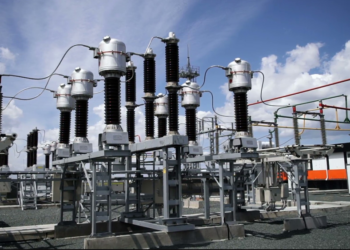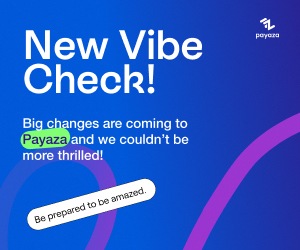Nigeria became Africa’s largest economy in 2014 when its gross domestic product (GDP) data was rebased but the country lags behind South Africa, the second-largest, in terms of the tax to GDP ratio. That is not all. While Nigeria’s tax to GDP is estimated at about 6%, South Africa’s is 28%, and the average tax to GDP in Sub-Saharan Africa is 17%.
What could be responsible for this disparity? A recent Small and Medium Enterprises survey conducted by PricewaterhouseCoopers (PwC) and obtained by Nairametrics revealed that business owners, especially SMEs would suffer more from the development, as it found that Nigeria probably has more tax authorities than any other country in the World with the exception of the United States. But, unlike Nigeria’s tax administration system, the United States’ tax to GDP ratio is 26% (over 4 times higher than Nigeria’s) with a much more robust database of taxpayers and payments.
READ ALSO: IATA raises alarm over excessive charges on Nigerian airlines, others
Findings of the survey
PwC surveyed over 1600 business owners across 29 states (6 geopolitical zones in Nigeria) to bring more light to reasons SMEs employ over 80% of the workforce but wealth is not diversified.
- 49% of SMEs pay 20% to 40% of their income or profits on taxes and levies.
- 28% of businesses pointed out that the Local government charges, taxes and levies were the most difficult to comply with. The average income tax rate for companies is about 32% and for non-incorporated entities 19.2%. This may mean that the local government actually accounts for the remaining 10% to 20% of the tax contribution from SMEs.
- The percentages are significant when compared to actual contributions by LGAs to tax collection in 2019. Unlike data on Federal and State tax revenues, Local government tax revenues are relatively difficult to ascertain or obtain.
- There is a need for consensus and collaborative dialogue from all public and private sector stakeholders in dealing with the data gaps, issues and challenges at the LG level.
- Multiple taxes and levies remain a bane for tax-paying businesses in Nigeria, especially MSMEs.
- The lack of coordination between federal and state tax agencies is also an issue. There are 36 state tax authorities in Nigeria, in addition to the Federal Inland Revenue Service (FIRS) and the local governments. Each of these entities has constitutional rights to raise taxes and this has given rise to increased tax burden and complaints from businesses.
- Nigeria ranked 159th out of 190 economies on PwC’s ease of paying taxes index 2020.
- The absence of a central technology platform stall ease of payment of taxes.
- It took, on average, 343 hours for entities to comply with tax payments. This was the time taken to prepare, file and pay value-added or sales tax, profit tax, labour taxes and contributions.
- Most businesses made, on average, 48 tax payments to the tax authorities in a year.
READ: IATA raises alarm over excessive charges on Nigerian airlines, others

READ ALSO: How much longer will players in the telecoms sectors suffer multiple taxations in Nigeria?
Expert’s recommendations
Partner & Head, Private Wealth Services, PwC, Esiri Agbeyi, explained that for the nation’s economy to grow at the desired rate, a lot more of SMEs must be unicorns (i.e. a privately held startup company valued at over $1 billion). To achieve such a feat, she recommends:
- Review Constitution and tax laws: Multiple taxes remain a problem as the Constitution gives the 3 government tiers distinct taxing powers. Businesses will continue to struggle with this problem unless something more concrete is done about excluding overlapping powers e.g. with consumption taxes. The tax laws should be reviewed and amended annually through Finance Acts. Over time, Nigeria can lean towards a lower direct tax on income and more indirect tax on spending as we find in developed economies.
- Centralised administrative system: Deploying a single centralised technology platform for tax administration in the country will help to improve tax collection, enhance ease of payment, reduce the cost of tax collection, as well as a plug or eliminate the leakages in the system. The time saved in paying taxes could be put to more productive use by businesses and the nation as a whole.
- Single Tax Authority: Most countries adopt the model of a single tax authority for tax administration of both corporates and individuals. This is the case with the UK’s HMRC and South Africa’s SARS. Both countries have significantly higher tax to GDP ratios than Nigeria. Companies are run by individuals. Linking both provides much gain in closing gaps on non-taxation or evasion. The reverse is the case when information is disaggregated across several tax authorities.
- Formalise the informal sector: Multiple taxes may be an issue but what is worse is when tax is paid by a few and the tax net is not widened. Some say the missing piece has been the informal sector. However, players in the informal sector cry that they pay taxes too. The problem is there is no data and some of the taxes collected may only find their way into private pockets. Evening the playing field for all taxpayers would involve relaxing the entry rules and easing the barriers for informal businesses to get into the formal sector.
READ MORE: FIRS to brace up on tax compliance policies
In all, it is important for the nation to consider these recommendations for higher tax revenues and more profitable SMEs, which would translate to a profitable economy. Whichever strategy Nigeria adopts, ensuring the SME sector is free of the burden of multiple taxes is very critical.
























